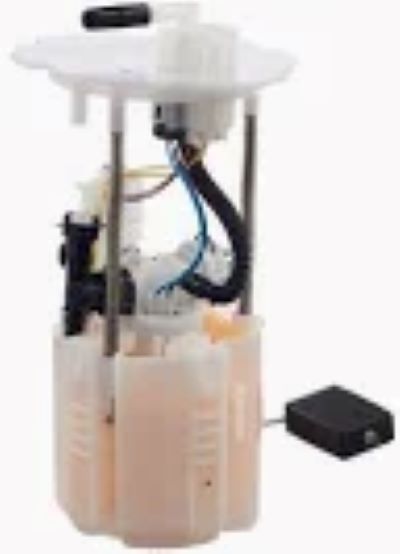Problems with fuel pumps can also reduce the quality of fuel supplied to the engine, which would ultimately result in low mileage. One important function that the fuel pump fulfills is maintaining the appropriate level of fuel pressure — in most fuel-injected vehicles, it should sit between 30 and 60 psi — so as to guarantee that your engine is receiving just enough fuel for combustion purposes. If your fuel pump is broken or defective in some way, it may not deliver the right amount of fuel to your engine and cause your car to run poorly or use too much gas.
Low Fuel Pressure Another symptom of a failing fuel pump is low fuel pressure, for example insufficient gas delivery which would be evidenced if the engine idles worse than usual or during acceleration. So the engine goes into a rich run and burns more fuel than it should to make up for the lost power. Failing to correct for this imbalance can lower fuel economy by 20%, which can mean that drivers spend more money on gas and fill up more frequently.
Fuel Delivery Difficulties: Considering the attention from an old or damaged fuel pump, inconsistent fuel delivery can also lead to your MAF profitability problems. This will result in occasional correct fuel delivery by the pump, and consequently varying engine performance. This can lead to misfire or loss of power, thus needing more fuel to stay at an adequate performance level. Erratic fuel delivery can result in a 10 to 15 per cent drop in fuel efficiency over time.

Fuel pumps also suffer from wear and tear when used for too long and over 100,000 miles, their performance can droop down. Lower-quality, rarely upgraded older pumps won't be able to provide fuel at the right rate—this higher pressure from other components of the fuel system will have its work cut out for those forces over time A fuel pump that is "checking out" so to speak cannot keep adequate flow of gas at all times, which results in a decrease in the gas mileage.
A clogged fuel filter will restrict the flow of clean fuel and cause unnecessary stress on the pump from having to work harder to push fuel through the system. The heart of the fuel pump that gets rain soaked and is trying to send extra fuel demand to a starving engine, over laboring the pump and driving fuel economy down the drain. Improving pump performance and fuel economy—replacing every 15K-30K miles
Example in the Real World: A study conducted by an auto repair chain in 2021 showed that vehicles with fuel pumps problems lost about 15% of their fuel economy on average. Such a substantial decrease underscores the kind of trouble that even small anomalies with a fuel pump can cause in terms of gas mileage.
Or to quote Benjamin Franklin, "An ounce of prevention is worth a pound of cure." Performing regular fuel pump and fuel system maintenance can save you money on repairs, help keep your engine running efficiently, reduce emissions and improve gas mileage.
If you are not getting very good gas mileage, it can be a great thing to look into in lieu of the CP4 fuel pump endforeach guiActive. Go to Fuel Pump to see a full line of top-quality replacements designed to return your car back to its pre-loss condition.
